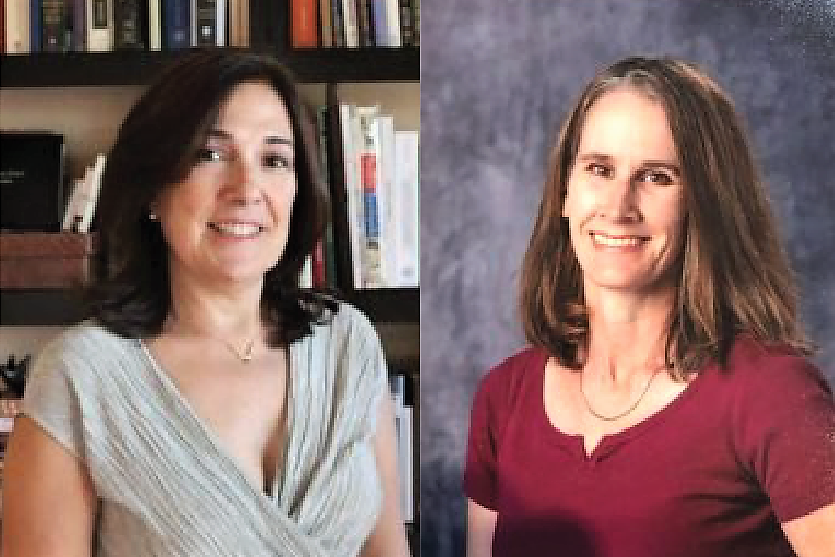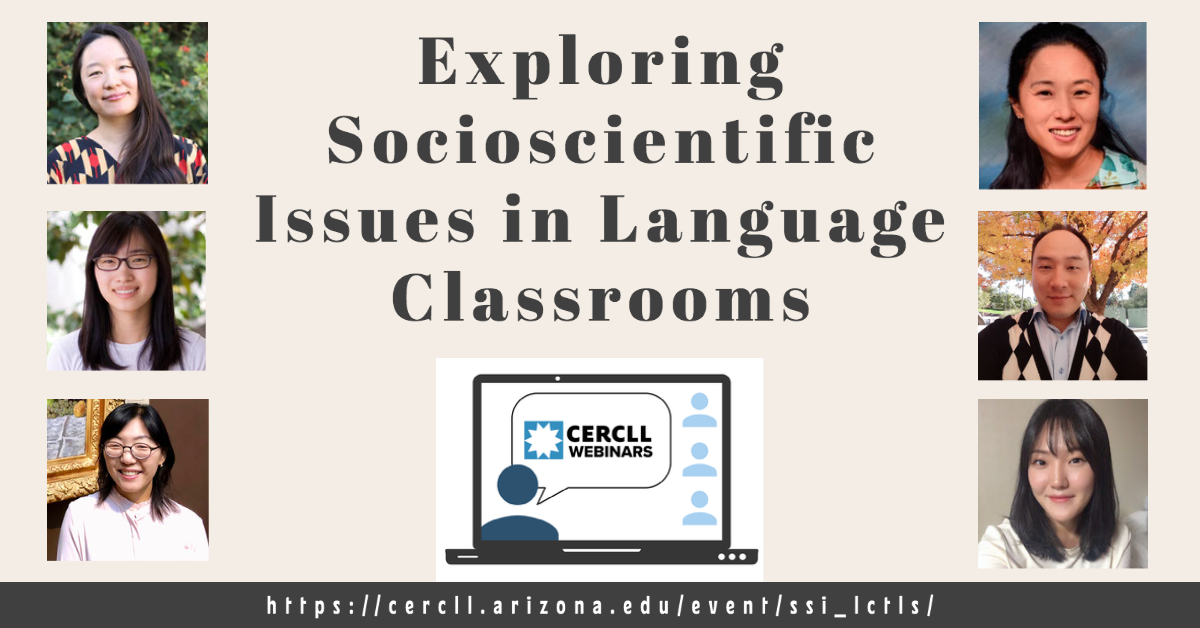The Center for Educational Resources in Culture, Language and Literacy (CERCLL) is part of a network of sixteen Language Resource Centers across the United States. Each with a different focus, these centers are funded by grants from the US Department of Education that are intended to promote and improve the teaching and learning of foreign languages. CERCLL creates resources and professional development opportunities that center on incorporating cultural awareness and multiliteracies into language teaching in multiple languages. Details about the clusters and projects in the current, four-year grant cycle can be found here.

This Spring and Summer, the directors and collaborators working on four CERCLL projects will present webinars in which they will train educators to use the materials that they have created over recent years. Participants will be given access to the newly created resources in these free professional development webinars, and they can request a certificate of attendance or digital badge as well.
The details for the individual events are noted below (each with a link to further information about the project on which they are based). Educators may attend one, all, or any combination of these webinars–each event below has a link to further information where biographical statements for all the presenters and the registration links can be found. Participants must register separately for each webinar they wish to attend; registration closes in advance.
As always, contact CERCLL if you have questions: cercll@email.arizona.edu, or +1(520) 626-8071 (leave a message if you phone, as we are all currently working remotely).
Translation in the Multilingual Language Classroom: Rationale, Roles and Activity Design
Wednesday, April 21 2021, 4-5:30 PM (Arizona)
A webinar presented by Dr. Sonia Colina and Sara Albrecht, University of Arizona.
Pedagogical translation is making a comeback in the multilingual language classroom as an activity that promotes literacy, metalinguistic and cultural awareness, translanguaging, language diversity, and community engagement. While theoretical papers on this topic are becoming more common, practical guidance for teachers on how to incorporate translation in their curriculum in an informed manner is scarce. This presentation helps teachers understand the historical context that banned translation, the justification for its reintroduction, and the roles translation can serve in language learning. Participants are guided through sample activities and learn basic steps to design translation activities that meet their learning goals.
This webinar is part of a larger CERCLL project, Cross-Cultural Thinking Through Translation and Interpretation.
➣ Learn more and access the webinar recording here.

Expanding L2 Learning: Teaching Multimodal Composition through Socioscientific Topics
Wednesday, June 2 2021, 10-11:30 AM (Arizona)
Webinar presented by Dr. Jill Castek, Rachel Floyd, Dr. Emily Hellmich, Dr. Blaine Smith and Wen Wen from the University of Arizona.
Multimodal projects use multiple modes to communicate ideas. In the digital world, images, sounds, colors and other design features together convey meaning that one mode alone cannot fully express. This webinar illustrates how composing across multiple modes (e.g., video, images, animation) can increase learners’ motivation, build digital literacies, and L2 expand communicative capacity. Classroom examples connect multimodality with socioscientific issues (controversial, real-world problems informed by science, e.g., global warming, genetic engineering) to encourage understanding of complex issues.
In this interactive webinar, participants will learn: 1) about multimodality; 2) how socioscientific issues can dovetail with multimodal projects; and 3) strategies for designing, implementing, and assessing multimodal projects in their own teaching contexts.
This event is part of the CERCLL project, Advancing L2 Composition through Socioscientific Issues.

Soaring Higher with MACAWS: Integrating iDDL with Other Web Applications to Enhance Language Learning
Saturday, June 12 2021, 10-11:30 AM (Arizona)
Webinar presented by: Dr. Bruna Sommer-Farias from Michigan State University, Dr. Adriana Picoral, Dr. Shelley Staples, Aleksey Novikov, and Mariana Centanin- Bertho from the University of Arizona.
Participants in this free, live webinar will explore the Multilingual Academic Corpus of Assignments – Writing and Speech (MACAWS), an ongoing project building a corpus of assignments (written texts, spoken discourse, and multimedia products such as blogs) produced by learners in Russian and Portuguese language programs at the University of Arizona. Following the premise that language is highly patterned, participants will learn how to create digital pedagogical materials using interactive Data-driven Learning (iDDL) to inductively guide students to discover language patterns. Participants will be guided through a hands-on experience on how to embed MACAWS searches into their activities and how to integrate iDDL with other available technologies, such as forms, websites, and collaborative boards.
Details about the MACAWS resources and links to the interface are here: https://cercll.arizona.edu/blog/macaws/.

Exploring Socioscientific Issues in Language Classrooms
Saturday, June 19 2021, 10-11:30 AM (Arizona)
Webinar presented by Dr. Young Ae Kim from the Defense Language Institute Foreign Language Center, Dr. Jieun Ryu, Dr. Sojung Chun, Dr. Seungmin Eum, Seojin Park and Dr. Sunyoung Yang from the University of Arizona.
Language educators teach languages as well as important fields such as diverse cultures, social justice, interpersonal skills, and multimodal literacy. In addition to these areas, our project expands language education to include socioscientific issues (SSIs) such as Eastern/Western medicines, COVID-19, eco-friendly travel, and machine translation in Korean language classrooms. SSIs are closely related to STEM fields and as STEM has been gaining more currency in our daily lives, it is useful to incorporate SSIs in language classrooms. Moreover, SSIs enable us to diversify the areas of study we provide in our language classrooms while fighting against the “STEM divide.” Our students can advance their understanding of the target language by critically engaging in SSIs through multimodal projects such as writing tasks based on the guided use of machine translation (GUMT), making COVID-19 memes, or creating digitized guides of eco-friendly travel. Our webinar will present language educators of different languages our four semesters of developing SSI curricula and pedagogy by using Korean as a case study. We will offer detailed instructor guidelines and teaching materials so that language educators who are not familiar with STEM education can implement SSIs in their classrooms.
This event is part of the CERCLL project Socioscientific Issues in LCTLs Classrooms.


